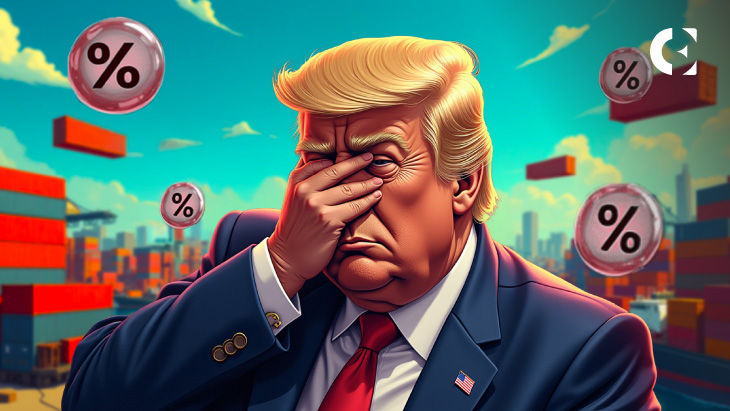- The court blocked Trump’s “Liberation Day” tariffs and cited overreach of constitutional powers.
- Judges say IEEPA can’t justify blanket tariffs; orders ruled unconstitutional.
- Small businesses and states win; Trump administration files appeal after court’s injunction.
In a broad decision, a U.S. trade court halted President Donald Trump’s “Liberation Day” tariffs, finding that the administration had overreached its constitutional power by levying universal penalties on goods from trading partners. On Wednesday, the Court of International Trade issued a permanent injunction. They also cited Congress’s only authority to regulate international trade.
The Manhattan-based court ruled that Trump’s use of the International Emergency Economic Powers Act (IEEPA) to impose blanket tariffs was impermissible under federal law. The IEEPA is designed to address “unusual and extraordinary” threats during national emergencies, which the court found did not justify the broad tariff implementation.
“The court does not pass upon the wisdom or likely effectiveness of the President’s use of tariffs as leverage,” the three-judge panel stated. “That use is impermissible not because it is unwise or ineffective, but because [federal law] does not allow it.”
Court Backs Small Firms and States in Tariff Challenge
The ruling was the result of two separate lawsuits: one filed by the Liberty Justice Center on behalf of five small U.S. importers, and another brought by twelve U.S. states challenging the tariff orders.
A Virginia-based manufacturer of instructional kits and musical instruments is among the impacted companies, as is a New York-based importer of wine and spirits. These companies argued that the tariffs would damage their ability to conduct business and maintain competitive pricing.
“There is no question here of narrowly tailored relief; if the challenged Tariff Orders are unlawful as to Plaintiffs they are unlawful as to all,” the judges wrote in their decision. Oregon Attorney General Dan Rayfield, whose office led the state’s lawsuit, called Trump’s tariffs “unlawful, reckless, and economically devastating.”
Trump Administration Files Notice of Appeal
Within minutes of the decision, the Trump administration challenged the court’s jurisdiction to make such decisions and filed a notice of appeal. All tariff orders issued by Trump since January that relied on the IEEPA for legal reasons were declared unconstitutional with immediate effect by the ruling.
Certain Industry-Specific Tariffs Remain Unaffected
However, the court ruling did not address some industry-specific tariffs Trump imposed on automobiles, steel, and aluminum using a different statutory authority. These sector-specific duties remain in effect pending separate legal challenges.
The U.S. Court of International Trade has ordered the Trump administration to revise its tariff directives within 10 days, enforcing a permanent injunction against the “Liberation Day” tariffs imposed under the IEEPA. At least five other legal challenges to various tariff orders remain pending in different courts, suggesting continued litigation over Trump’s trade policies.
Disclaimer: The information presented in this article is for informational and educational purposes only. The article does not constitute financial advice or advice of any kind. Coin Edition is not responsible for any losses incurred as a result of the utilization of content, products, or services mentioned. Readers are advised to exercise caution before taking any action related to the company.







